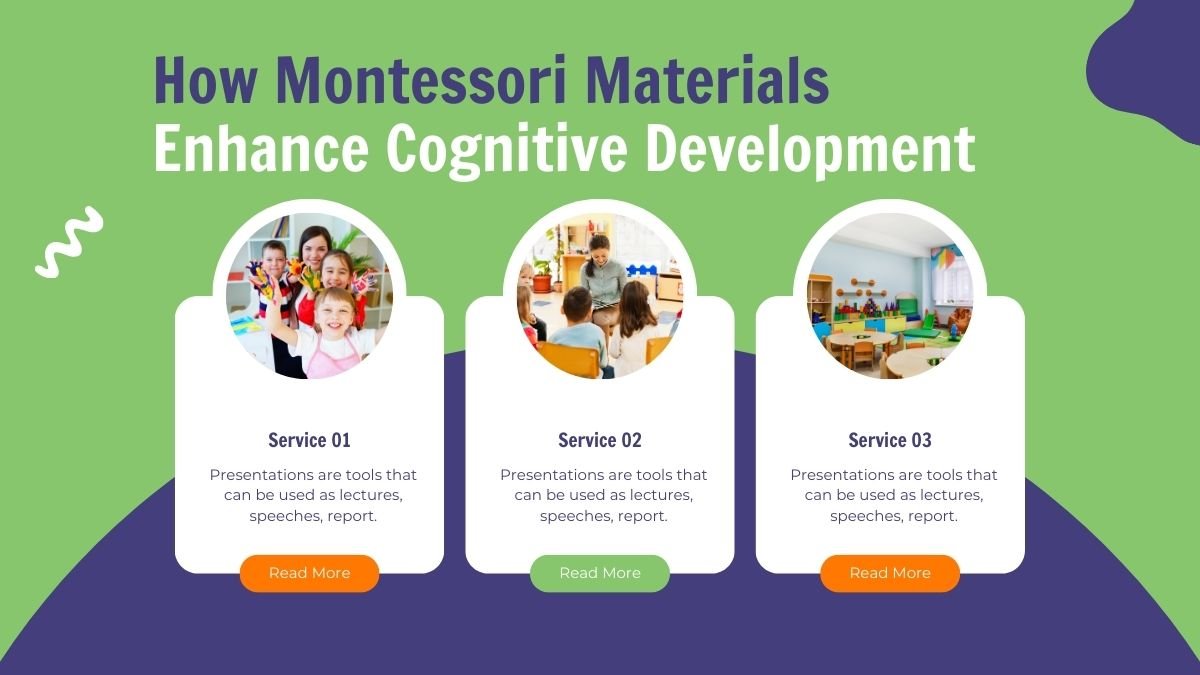How Montessori Materials Contribute to the Mental Development of a Child
Learning is a magical process that is highly influenced during childhood. It is during this period that the architecture of a child’s mind is formed, helping him think, understand, and solve problems. In Montessori education, materials are used specifically to enable children to learn from their experiences through muscle movement, sensory activity, and observation of complex ideas.
Montessori materials allow children to think, discover, and learn independently. Children learn at their own pace and by making mistakes, gradually becoming independent over time.
Why Montessori Materials Matter
Montessori materials emphasize learning through hands and senses. Children learn via visual, kinesthetic, and auditory stimulation rather than solely reading or listening.
Examples:
- Mathematics: Beads help children understand numbers, addition, and subtraction.
- Language: Alphabet blocks and word cards teach words and pronunciation.
- Pink Tower: Helps children comprehend differences in height, length, and size.
All of these activities strengthen multi-sensory learning in a child.
How Montessori Materials Increase Problem-Solving and Logical Thinking Ability
Montessori materials provide an environment that trains children to solve problems and think critically:
- Stacking blocks of different shapes requires planning which block to place first.
- Sorting items by color or shape helps children compare and classify.
- Puzzles, matching, and sequencing activities develop logical reasoning.
These materials enhance critical thinking and analytical abilities in children.
Self-Correction and Independence
Montessori materials are self-correcting, allowing children to recognize and fix mistakes without repeated reminders from adults.
Examples:
- Counting beads: Errors are observable directly in the material.
- Puzzles: Children identify incorrectly fitted pieces themselves.
This fosters independence, confidence, and self-esteem as children learn they can complete tasks unassisted.
Increase Attention and Concentration
Montessori materials help children sustain attention and develop concentration. Their engaging nature keeps children engrossed in tasks without interruption.
Uninterrupted work periods in Montessori classrooms allow children to focus for hours, gradually mastering attention and concentration skills.
Example: A child can spend 20–30 minutes counting beads or solving a puzzle, improving proficiency and concentration over time.
Bringing Abstract Concepts to Concreteness
Montessori materials make abstract ideas tangible for children:
- Mathematics: Numbers, addition, and subtraction explained with beads and counting rods.
- Colors and shapes: Learned through tangible objects.
- Language: Letters and words learned using physical blocks.
Children not only memorize words but also understand concepts by seeing, touching, and experiencing them.
Memory and Understanding Strengthening
Multi-sensory engagement enhances memory and understanding:
- Manipulating alphabet puzzles teaches letters and sounds.
- Shape sorters help children understand geometric concepts.
Individualized Learning Pace
Montessori materials respect each child’s pace. Children spend more time on activities of interest, which acts as an intrinsic motivator.
Examples:
- A child interested in mathematics may focus on beads and number rods.
- A child skilled in language may spend more time with alphabet blocks or reading.
Self-Reliance and Confidence
Montessori materials encourage independent learning, allowing children to make choices and learn from mistakes. This nurtures confidence and a growth mindset.
Examples:
- Completing a puzzle → sense of pride.
- Doing addition with counting rods → feeling of mastering a new concept.
The Importance of Montessori Materials in a Child’s Life
Montessori materials lay the foundation for lifelong learning:
- Encourage problem-solving and critical thinking.
- Foster self-reliance, responsibility, and confidence.
- Make abstract concepts concrete and understandable.
- Allow learning at an individualized pace and stimulate curiosity.
Montessori materials are not just for play or passing time; they promote holistic mental and social development.
Conclusion
Montessori materials form a self-sufficient learning system, fostering:
- Problem-solving skills and critical thinking
- Intuitive memory and understanding of abstract ideas
- Confidence and independence through self-correcting designs
- Individualized learning and intrinsic motivation
For a child to become capable of thinking, understanding, and learning independently, integrating Montessori materials into their education is one of the best strategies.








